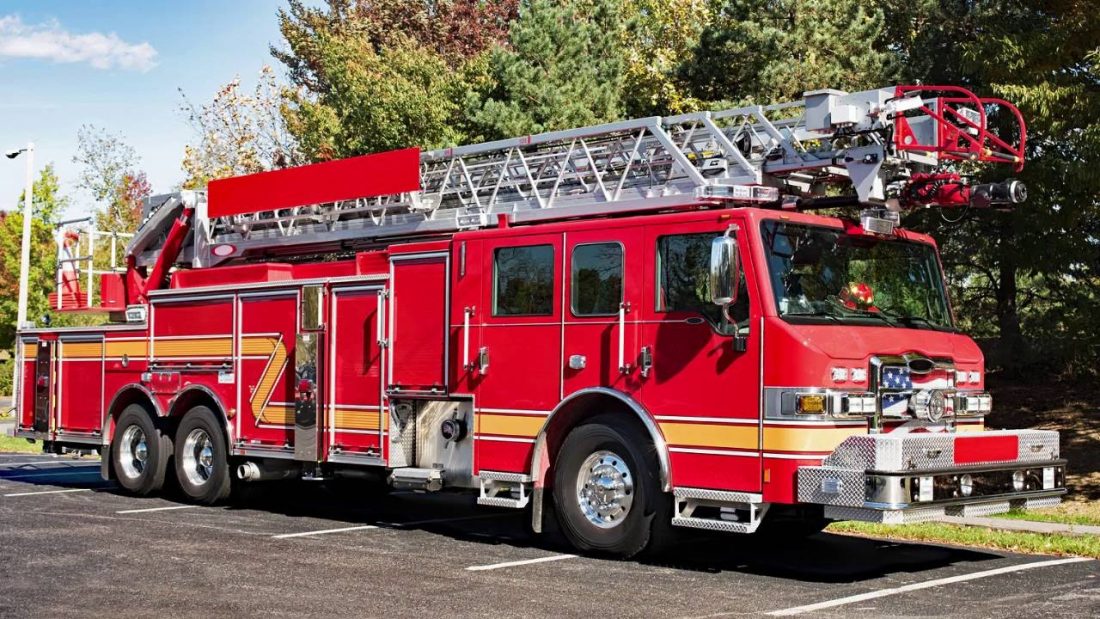This post is brought to you by ReviewHomeWarranties.com.
Few people realize that the United States alone experiences an average of 358,000 home structure fires a year. House fires are incredibly dangerous and take a serious toll on families everywhere. Whether your home is at risk due to your environment being prone to wildfires, or you left the kitchen towel too close to the stove, the results of big and small house fires can be devastating. Small house fires might ruin a room – such as the kitchen – where you’ll need to replace expensive appliances, etc. However, large house fires could potentially bring down the whole structure of your home and any surrounding structures.

This could leave you without shelter in the near future, could wreak havoc on your work life or the consistency of your kid’s schedules. Luckily, there are ways to deal with a house fire, and even more ways to prevent them in the first place with Fire Watch Security. Staying informed is the first step to protecting you and your loved ones.
After it Happens
You may be working towards dealing with the results of a house fire right now. No matter how emotionally and physically challenging your experience has been, you can get through this.
- Immediately report your house fire to the local authorities and fire department. Get their help as quickly as possible to uncover the cause, and help in any way they can.
- Call on friends and family to help. Whether you need assistance arranging for temporary living, watching your children, or cleaning up after what’s left post-fire, friends and family are sure to pitch in.
- Don’t feel ashamed if you need to reach out to a counselor for yourself or your loved ones. Fires can shake you to your core, and if you need help you deserve to have some peace of mind.
- Use insurance to be reimbursed and don’t take no for an answer. Before you do that, inspect your coverage policy thoroughly to see what you are entitled to and whether it specifically deals with house fires. Remember that warranty coverage policies are normally not inclusive of natural disasters or fires.
During a House Fire
- Call emergency services immediately if you’re on site or as soon as you discover that the house fire is occurring.
- Have a “family emergency” binder prepared and near an exit (or stored somewhere outside the house). That way you can grab it as you run out the door with your loved ones. The binder should contain all family emergency contacts, etc. You can also use an app to organize this information or put an alert out to friends that something is wrong.
- Stay clear of the area as long as you need to, and before entering the area check with the authorities. If you need to secure the area, do so as soon as possible.
Preventing House Fires
- Have a clear plan for you and your family on how you’ll exit your home in case of a fire. It’s best to be prepared before an emergency situation happens.
- Make sure your home is armed with smoke alarms.
- Regularly check your home appliances and use them with care. Regular cleaning and maintenance can help prevent a fire. If the expense of maintenance, repair, or replacement is getting in your way, consider a home warranty, check out these home warranty reviews. A home warranty will, for a small monthly contract fee and a one-time service fee if something breaks and needs repair, eliminate the often too-high costs associated with faulty appliances.
- Update your insurance coverage regularly to make sure all of your assets are covered in case of a house fire or other emergency.
Home fires can be nerve-wracking. But, with a plan outlines in advance, you’ll know exactly how to handle the situation should the unthinkable happen. Here are some additional tips on preventing house fires to share with your friends and family:
- Use safe cooking practices. Keep flames low and watch a hot stove or oven at all times.
- Check your electricity annually.
- Make sure grills are cooled fully before moving them towards the house or recovering them with a grill cover.
- Watch any flammable materials and make sure they are stored safely.
- Never leave candles lit when you’re not monitoring them.
- Teach your children that fire isn’t to be played with.
- Give your lighting a break – lamp shades can heat up and cause a fire, too.
By following these easy tips, you’ll be well on your way to fully preventing a house fire. Staying knowledgeable about the state of your appliances and your surrounding in general can certainly go a long way in preventing house fires and all kinds of other emergencies. If you’ve recently experienced a house fire, just keep reminding yourself that you will recover. Setting aside the emotional distress that a house fire can cause can help you narrow in and focus on fixing the problem at hand and setting up preventative measures for the future. Together, we can all work to protect ourselves and one another from house fires.




